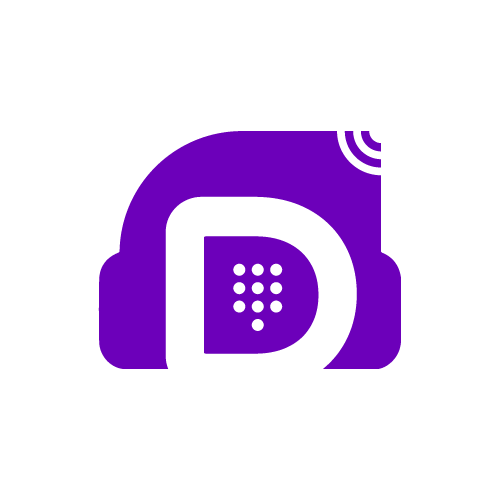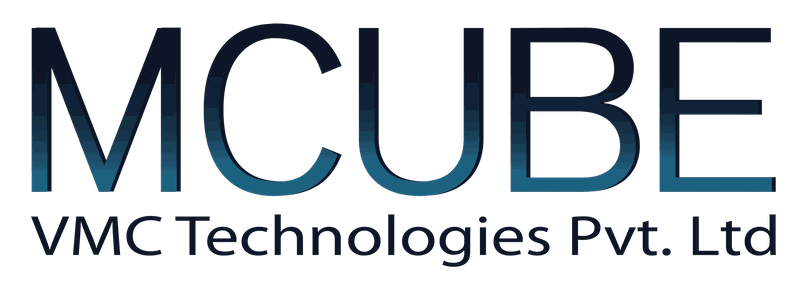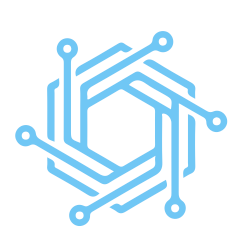Yes, most call recording software can be used on many devices and platforms. This is because they are typically cloud-based, allowing users to access their recordings from any device with an internet connection. Some call recording software may have dedicated mobile apps for increased convenience. However, it is always important to check with the software supplier to confirm compatibility with your preferred devices and platforms.
List of 20 Best Call Recording Software
MocoSpy the android monitoring solution that provides comprehensive tracking of your loved ones. This advanced software grants remote access to any android device, allowing you to monitor all their activities effortlessly. Keep your loved ones safe a...Read More MocoSpy
Coztel is a cloud-based contact center solution that offers a wide range of services, including outbound dialing, ACD, IVR, and hosted PBX. With seamless integration across multiple communication channels like Phone, Chat, Email, Mobile, and Social,...Read More Coztel
Noojee is a call recording software for businesses. With its advanced capabilities, Noojee allows you to effortlessly listen to and evaluate customer calls, guaranteeing top-notch service and enhanced performance. Keep a record of all calls for effic...Read More Noojee
JustCall is a customer communication solution powered by AI. Streamline your customer interactions through Voice, SMS, and WhatsApp with ease and efficiency. Say goodbye to complex workflow management and elevate your teams performance with our unifi...Read More JustCall
DialerHQ solution for streamlined communication. With DialerHQ, you can make calls and send messages using a separate number while keeping your personal one private. Enjoy the highest level of privacy and security, as all conversations are completely...Read More DialerHQ
MCUBE is a cloud-based Call Center Solution that streamlines sales processes and elevates customer satisfaction. Say goodbye to the hassles of traditional inbound call management and switch to MCUBEs affordable and effortless Cloud Telephony Solution...Read More MCUBE
ZCloud is software specifically designed to streamline business processes and enhance productivity. This innovative solution automates repetitive tasks and seamlessly integrates operations, providing real-time data analysis and collaborative tools. I...Read More ZCloud
Mitel, the premier communication solution for businesses of all sizes. With seamless integration and advanced call management features, Mitel streamlines communication and boosts productivity. Real-time analytics provide valuable insights, while its...Read More Mitel
FreeCallTracking AI is a call tracking solution for monitoring and analyzing inbound calls from your digital and marketing efforts. With advanced features like real-time tracking, recording, and keyword-level tracking, as well as dynamic number inser...Read More FreeCallTracking AI
Salesloft is a platform that simplifies your sales communication. With email and call tracking combined, you can gather valuable engagement data to guide your next move and streamline your sales process. Keep all your communication activities organiz...Read More Salesloft
Discover the efficiency and convenience of Dialpad, the top cloud-based telephony solution designed for seamless team communication. Say goodbye to disruptions with crystal clear voice and video calls, all accessible from anywhere and anytime. With D...Read More Dialpad
Arcane Lite - the advanced and compact USB recorder that simplifies recording and managing phone conversations. Compatible with analog phone lines, it effortlessly captures incoming and outgoing calls, allowing you to retrieve and analyze vital infor...Read More Arcane Lite
Adversus is a B2B software that streamlines outbound calling processes for call centers. It is tailored for industries like telecom, finance, and insurance, and is trusted by thousands of agents across Europe and the US to optimize their prospecting...Read More Adversus
MiCloud Connect is a communication solution that simplifies operations and enhances team interactions for companies of all sizes. With its integrated features, user-friendly interface, and secure cloud-based services, this powerful platform boosts pr...Read More MiCloud Connect
Yo Telecom is a communication solution for businesses. Our advanced system seamlessly integrates into your operations, providing 24/7 support and comprehensive training. With customizable features, Yo Telecom enhances connectivity, simplifies process...Read More Yo Telecom
IpSCAPE is a cloud contact center solution equipped with cutting-edge AI capabilities. Elevate customer experiences and streamline communication with powerful omnichannel tools and seamless integrations. With its advanced features and user-friendly d...Read More IpSCAPE
CallTrackingMetrics is a tool for driving customer insights and increasing revenue. By harnessing the power of advanced AI analytics and seamless integrations, it allows your team to make data-driven decisions and streamline sales effortlessly. Say g...Read More CallTrackingMetrics
AgileCRM is a CRM solution, provides a range of features including contact management, marketing automation, web analytics, telephony, newsletter management, real-time activity alerts, and seamless third-party integrations. Its advanced tools and fun...Read More AgileCRM
Callcap is a call tracking software perfect for both startups and enterprises. Its intuitive interface and comprehensive features, such as Instant Retrieval, Call Routing, Call Sharing, Distributed Call Recording, and IVR/Voice Recognition, make it t...Read More Callcap
Ozonetel CloudAgent - the leading cloud-based telephony solution for businesses. Streamline all your customer conversations, whether its through voice, chat, SMS, social media or WhatsApp, from one centralized platform. Boost efficiency, simplify ope...Read More Ozonetel CloudAgent
Learn More About Call Recording Software
- What Is Call Recording Software?
- What Are The Recent Trends In Call Recording Software?
- Benefits Of Using Call Recording Software
- Important Factors To Consider While Purchasing Call Recording Software?
- What Are The Key Features to Look For In Call Recording Software?
- Why Do Businesses Need Call Recording Software?
- How Much Time Is Required To Implement Call Recording Software?
- What Is The Level Of Customization Available In Call Recording Software?
- Which Industries Can Benefit The Most From Call Recording Software?
- Conclusion
What Is Call Recording Software?
Call recording software is a digital tool that allows users to record and save telephone conversations. This software is widely used in enterprises, call centers, and customer service industries, where tracking customer interactions is critical for quality control and training. When investing in call recording software, a few crucial characteristics should be considered.
First and foremost, the software should be compatible with your phone system and gadgets to ensure proper operation. It should also be able to record both inbound and outbound calls, as well as pause and resume recordings while the call is active. One of the most crucial features to look for in call recording software is the ability to save and manage recordings.
The software should enable for easy replay of call recordings as well as the organization and categorization of recordings for future reference. In addition to simple call recording, some software may include additional functions like speech analytics, which transcribes and analyzes call records to provide useful insights. This can be useful for identifying client pain spots, enhancing customer service, and providing sales training.
Security is also an important element to consider when choosing call recording software, especially if your company handles sensitive information. The program should provide data encryption and safe storage to preserve client privacy and ensure compliance with data protection legislation. Finally, think about the scalability of the software. As your company grows, the software should be able to handle an increasing number of users and calls while maintaining performance.
Overall, call recording software is a useful tool for firms that want to improve customer service, track employee performance, and get insights for future growth. You may improve your communication and productivity by selecting the best call recording software based on essential features and your business needs.
What Are The Recent Trends In Call Recording Software?
Call recording software is an essential tool for businesses of all kinds, allowing them to rapidly and properly record and save phone calls. As technology advances, call recording software evolves to meet the changing needs of businesses. Below are some current trends in call recording software that purchasers should be aware of.
1. Cloud-Based Systems: Cloud-based call recording systems have been increasingly popular in recent years. Businesses may now securely keep their call records on the cloud, giving them easy access and flexibility from anywhere, at any time.
2. complex Search And Analysis Features: As the amount of recorded calls increases, organizations are looking for call recording software that includes more complex search and analysis features. Some of the call recording software market's most popular features include real-time transcription, sentiment analysis, and keyword search.
3. Integration With CRM And Other Business Tools: Call recording software that integrates with CRM and other business tools is becoming increasingly popular. This allows firms to link recorded calls to consumer information, offering useful insights for improving customer service and sales tactics.
4. Artificial Intelligence And Machine Learning: By incorporating artificial intelligence and machine learning, call recording software has improved its data analysis and decision-making skills. These technologies enable the software to automatically transcribe calls, discover trends, and deliver actionable information to help businesses improve their operations.
5. Mobile Call Recording: With the development of remote work and the use of mobile devices for business calls, call recording software has seen a surge in popularity. This feature enables organizations to record and preserve calls made via mobile devices, resulting in comprehensive call data records.
Benefits Of Using Call Recording Software
Call recording software is an effective tool that provides several benefits to businesses of all sizes. Communication is essential in today's fast-paced world, and call recording software makes it easier by allowing you to record, preserve, and analyze your phone conversations. In this buyer's guide, we'll go over the main benefits of using call recording software and how it can improve your company's performance.
1. Improves Customer Service: One of the primary advantages of call recording software is its capacity to enhance customer service. By recording calls, organizations may identify areas for improvement and deliver better customer service. Call recordings can be used to train new staff, analyze customer happiness, and track the quality of service delivered. This allows firms to create close relationships with their customers and obtain a competitive advantage in the marketplace.
2. Ensures Compliance: To comply with rigorous laws, organizations in regulated industries must use call recording software. These industries include healthcare, finance, and legal services, which employ call recordings as evidence in disputes or legal procedures. Businesses can avoid penalties and maintain industry compliance by ensuring that all calls are recorded.
3. Enhances Sales And Marketing Strategies: Call recording software is an extremely useful tool for sales and marketing teams. Listening to recorded calls allows firms to identify their consumers' problem spots, understand their demands, and modify their sales and marketing efforts appropriately. This allows them to enhance their conversion rates, close more deals, and raise income.
4. Facilitates Better Staff Training: Effective staff training is critical to the success of any organization. Call recording software allows organizations to analyze their employees' strengths and weaknesses and provide targeted training sessions to help them improve their skills. This not only improves their performance, but also increases their confidence and motivation.
5. Helps With Dispute Resolution: Call recording software keeps a digital record of all talks, making it an invaluable tool in the event of a dispute with a client or employee. It keeps a precise record of what was said and by whom, which can be used as evidence to resolve disputes and protect the company's interests.
6. Improves Efficiency And Productivity: Manually taking notes on a phone call can be time-consuming and distracting. Call recording software avoids this step by automatically recording every element of the discussion. This not only saves time, but also enables employees to concentrate on the topic, resulting in more productive and effective collaboration.
7. Provides Valuable Insights: Call recordings can provide organizations with significant insights into their consumers' behavior, preferences, and problem areas. This allows them to make more informed decisions and improve their entire operations, resulting in greater customer happiness and loyalty.
Important Factors To Consider While Purchasing Call Recording Software?
When choosing call recording software, there are several crucial considerations. These variables will assist you in selecting the appropriate software for your specific business requirements and budget.
1. Compatibility: The first aspect to evaluate is the software's compatibility with your current phone system. Check that the software is compatible with your phone system type (analog, digital, VoIP) and your phone service provider.
2. Features: Before making a purchase, consider which features are critical to your organization. Call tagging, automatic call recording, and real-time monitoring are some of the most prevalent call recording software capabilities. Choose software that includes capabilities that are relevant to your business needs.
3. Storage And Accessibility: Consider the software's storage capacity and whether it is extensible. Check for remote accessibility features so you may access call records from anywhere, at any time.
4. User-Friendly Interface: The software should have a simple interface that is easy to navigate and utilize. This will ensure that your team can quickly learn to use the software with minimum training.
5. Call Quality: The primary function of call recording software is to capture and save audio recordings of calls. As a result, it is critical to guarantee that the program produces high-quality recordings that are clear and easy to understand.
6. Security And Privacy: Call recording software should include suitable security features to keep recorded data from being accessed by unauthorized persons. It should also follow data privacy standards to protect sensitive information.
7. Integration: Choose software that is easily interconnected with other business tools and apps, such as CRM software. This will improve your team's efficiency and productivity by streamlining operations.
8. Customer Help: In the event of a technical problem, the software provider should give trustworthy customer help. Check their response speed and availability to ensure prompt support when needed.
9. Cost: Call recording software can range from free to pricey, based on its features and capabilities. Before making a purchasing choice, consider your budget and the value the program will add to your firm.
What Are The Key Features to Look For In Call Recording Software?
When it comes to selecting a dependable call recording software, there are a few crucial aspects to check for to ensure that it fulfills your company requirements. Whether you run a small or large business, having the correct call recording software is essential for accurately capturing and archiving key calls.
The following are the essential aspects to consider when making your purchasing decision:
1. Call Recording Quality: The major function of call recording software is to record and save phone conversations for later reference. As a result, it is critical to look for software that provides high-quality recording capabilities to guarantee that all critical facts are accurately captured.
2. Compatibility: Before making a purchase, ensure that the call recording software works with your current phone system. This will allow for seamless integration and prevent compatibility issues.
3. Call Search And Retrieval: Look for software that allows you to easily search and retrieve recorded calls. This function can save a significant amount of time and effort when searching for certain talks.
4. Call Monitoring: Some call recording software allows managers or supervisors to listen in on live calls to ensure quality control. If this is vital to your business, make sure you select software that includes this capability.
5. Customizable Settings: A decent call recording program should allow you to customize recording rules, storage options, and access levels. This enables a personalized and customizable experience for various teams inside your organization.
6. Transcription And Translation: If your company works with overseas customers, seek for software that includes transcription and translation capabilities. This will facilitate comprehension and conversation with non-native speakers.
7. Security And Compliance: Because call recordings may contain sensitive information, use software that includes strong security features and complies with data protection laws.
8. Access and Storage: Consider how many people will need access to the call recordings, as well as the amount of storage space required to store all of them. Most call recording software provides a variety of plans with varied access and storage choices.
9. Integration With CRM And Other systems: If you use Customer Relationship Management (CRM) or other business systems, search for call recording software that integrates with them. This will enable for more efficient processes and easier maintenance of call recordings.
10. Technical Assistance: Last but not least, select a call recording program that provides consistent technical assistance. In the event of any hitches or troubles, you can be confident that timely assistance will be provided to get your system back up and running.
Why Do Businesses Need Call Recording Software?
Call recording software is an extremely useful tool for businesses of all sizes and sectors. This technology enables you to record, archive, and analyze telephone calls, which has numerous advantages for both your clients and your business operations.
we'll look at the reasons why firms should invest in call recording software.
1. Quality Assurance And Training Purposes: One of the key reasons firms want call recording software is to assure great client interactions. Recording calls allows managers to examine and analyze their employees' performance, identify areas for development, and provide targeted training. This, in turn, enables firms to maintain high levels of customer service and satisfaction.
2. Dispute Resolution & Compliance: In today's litigious world, keeping a record of all customer interactions might help your company avoid any disagreements or legal action. Call recording software can give you with an exact and unbiased description of what occurred during a call, which can be used as evidence in a dispute. Furthermore, many areas, such as finance and healthcare, have tight compliance rules, and call recording software can help guarantee that your company meets these standards.
3. Improved Sales: Techniques Call recording software can be a useful tool for salespeople looking to improve their tactics. Sales managers can analyze recorded calls to determine the most effective sales methods utilized by their top-performing agents and share them with the rest of the team. This can lead to improved conversion rates and more income for the business.
4. Performance Monitoring And Customer Insight: Call recording software supplies organizations with a plethora of information about their clients' wants and preferences. Listening to recorded calls allows managers to better understand their customers' pain points, detect patterns, and make data-driven decisions to improve their goods and services. This can lead to higher client satisfaction and retention, resulting in business growth.
5. Remote Work And Flexibility: In today's business scene, where remote working has become the standard, call recording software provides more flexibility for firms. Employees can access recorded calls from anywhere, allowing them to work from home or while traveling without sacrificing quality. This also allows organizations to have a single system for recording and archiving calls, which simplifies data management and access.
How Much Time Is Required To Implement Call Recording Software?
The implementation time for call recording software varies based on the program and the complexity of the system. In general, the procedure can take anything from a few days to several weeks. The initial step in implementing call recording software is to configure the system. This includes installing and configuring the software on your servers or in the cloud so that it works with your phone system.
Next, you'll need to teach your employees how to utilize the software and any features that are unique to your company. This may take several days, depending on the size of your team and their experience with the software. Additional work may be required to build up connectors between call recording software and other systems, such as a CRM or analytics platform.
Finally, test the system to confirm that it reliably records calls and that all features function effectively. This could include making test calls and examining the recordings. Overall, the time necessary to establish call recording software will be determined by your specific company requirements and the level of customization needed. It is critical to collaborate closely with your software provider to develop a clear implementation plan and to set aside adequate time and resources for a successful deployment process.
What Is The Level Of Customization Available In Call Recording Software?
One of the most important considerations when selecting call recording software is the level of flexibility provided. Depending on your company's specific requirements, the ability to tweak and tailor the software can significantly improve its efficacy and usefulness. Most call recording software provides a variety of customization options, allowing you to tailor settings and functionality to your specific business needs.
When determining the extent of customisation, significant variables to consider are the capacity to change recording parameters, interface design, user access, and interaction with other systems. The recording parameters specify the circumstances under which calls are recorded. These characteristics may include call duration, specific phone numbers or departments, and call categories.
The ability to tailor these parameters guarantees that only important and required calls are recorded, which saves time and storage space. The interface design is another important aspect of customisation. A user-friendly and customisable interface makes it easy to navigate and access key features, minimizing the learning curve and increasing call recording efficiency. Customization is also important in terms of user access.
Depending on your organization's structure, you may need to restrict access to call records to select individuals or departments. Customizing user roles and permissions protects sensitive information while allowing relevant parties to view recordings as needed. Finally, connectivity with other systems can significantly increase the use of call recording software.
Depending on your business requirements, you may want to combine call recording with customer relationship management (CRM) software or other business tools. The level of customisation available for integration is determined by the software's specific capabilities. Before purchasing call recording software, you should properly analyze the level of customization available. Consider your company's specific needs and ensure that the program provides the essential modification choices to maximize its functionality. With the correct level of customisation, call recording software can become a great asset for your company.
Which Industries Can Benefit The Most From Call Recording Software?
Call recording software is an extremely useful tool for businesses of all sizes and sectors. It enables businesses to record and analyze interactions their employees have with customers and clients, resulting in useful insights and improved overall performance. While the advantages of call recording software are numerous, certain businesses stand to benefit the most from this technology.
we'll look at the top industries that can benefit from call recording software, as well as the essential factors to consider when selecting the best solution for your organization.
1. Customer Service/Support: Customer service and support are two areas that can greatly benefit from call recording software. Call recording helps customer service workers to reflect on their interactions with consumers and find areas for development. It also allows managers to monitor and coach their teams, assuring consistency and quality in customer interactions. Furthermore, call recording software can help organizations address customer complaints and concerns more effectively by referencing recorded discussions to ensure accurate and fast resolutions.
2. Sales: In the highly competitive sales industry, call recording software can provide a major edge. By reviewing sales calls, sales managers can identify their top performers and apply their skills to train and motivate other team members. They can also monitor the performance of new sales agents and offer suggestions for improvement. Furthermore, call recording software can help organizations comply with telemarketing laws and regulations.
3. Healthcare: Call recording software is extremely useful in the healthcare profession, where confidentiality and accuracy are important. Recordings of patient meetings and consultations can help medical personnel enhance patient care and reduce the likelihood of errors. Furthermore, call recording software can assist with billing and insurance issues by providing evidence of what was stated during phone conversations.
4. Financial Services: In the financial services industry, call recording software is critical for compliance. Financial organizations are obligated to preserve records of client contacts, and call recording software makes this easy and secure. It also enables the surveillance of financial counselors and traders, lowering the possibility of fraudulent or improper behavior.
5. Hospitality: With the hospitality industry's emphasis on providing exceptional customer service, call recording software can help improve visitor experiences. Recorded calls can help hotel and restaurant managers train employees, answer guest concerns, and maintain service standards. It can also provide insights on how guests engage with various employees, allowing for better customer service initiatives. Other areas that can profit from call recording software include education, government, and transportation. The best call recording software for your organization will be determined by your industry's specific requirements, budget, and desired features. When making your decision, take into account call recording capacity, user friendliness, integration capabilities, and customer support. With the appropriate call recording software, your company can boost staff performance, increase customer happiness, and gain a competitive advantage in your sector.
Conclusion
To summarize, investing in call recording software can give several benefits to businesses of any size. It enables businesses to improve customer service, comply with legal requirements, and improve employee training and performance. When selecting the best software for their business, purchasers must keep their individual goals and expectations in mind.
When making a purchase, customers should consider the features and functionalities available, the compatibility with their existing systems, the level of security and data protection, and the software's scalability. It is also vital to analyze the vendor's pricing and customer support. Buyers may guarantee that they select a solution that meets their specific requirements and produces the intended outcomes by thoroughly researching and comparing various call recording software choices.
With the appropriate software in place, businesses can streamline their processes, increase customer satisfaction, and gain a competitive advantage in the market. Thank you for reading this buyer's guide; we wish you well on your call recording software journey.
Call Recording Software FAQ's
Can Call Recording Software Be Accessed Across Multiple Devices And Platforms?
Is Call Recording Software Future-Proof and Adaptable To Emerging Technologies Like Ai, Blockchain or Iot?
Call Recording Software is continually changing in response to technological breakthroughs. It is designed to be future-proof and adaptable to upcoming technologies like as artificial intelligence, blockchain, and the Internet of Things. Call recording software that incorporates these technologies can improve recording quality and accuracy, increase security and privacy, and give sophisticated analytics for better decision making. As technology advances, so will call recording software, making it an invaluable tool for organizations.
Is There A Free Trial Offered To Assess Call Recording Software Before Committing?
Yes, many call recording software vendors provide free trials to prospective users. This enables users to try out the software's features and capabilities, assess its suitability for their requirements, and make an informed decision before making a long-term commitment. It is essential that you take advantage of free trials and extensively investigate the program to verify it matches your needs.
Does Call Recording Software Offer Data Security Features And Meet Regulatory Compliance Standards?
Yes, most call recording software includes data security features like encryption and password protection to assure the safety and secrecy of recorded calls. Furthermore, many call recording solutions follow industry standards and laws, such as GDPR and HIPAA, to preserve sensitive information and ensure compliance. To protect your company's sensitive information, use trustworthy call recording software that focuses data security and regulatory compliance.
Can Call Recording Software Integrate Seamlessly With Existing Tools And Platforms?
Yes, most call recording software integrates effortlessly with existing tools and platforms. These software solutions provide interaction with prominent customer relationship management (CRM) systems like Salesforce and HubSpot, as well as communication platforms like Skype and Teams. This enables organizations to organize and retrieve call recording data with other critical consumer information. Some call recording software also provides configurable APIs for interaction with other corporate tools, making the process even smoother.






















